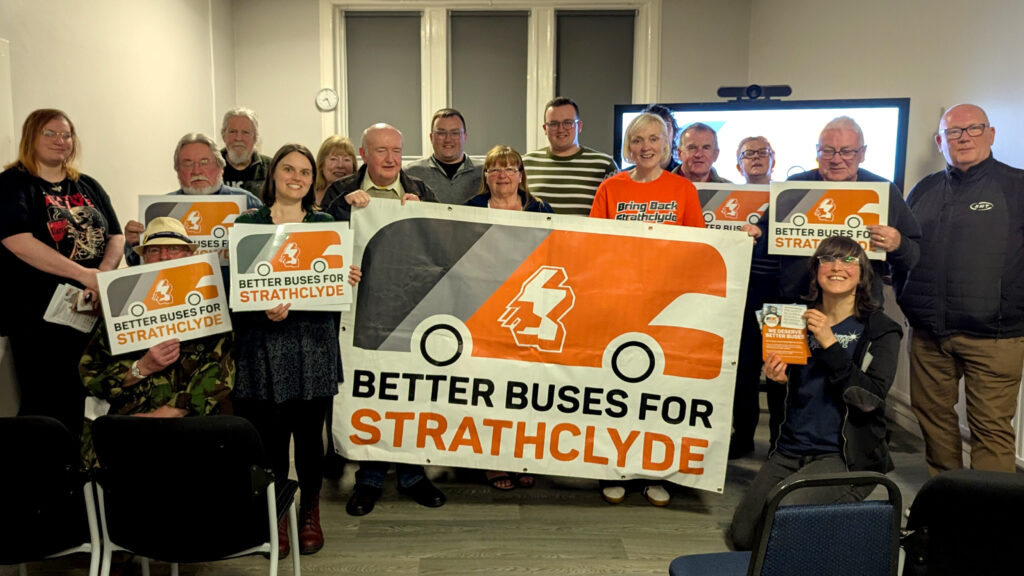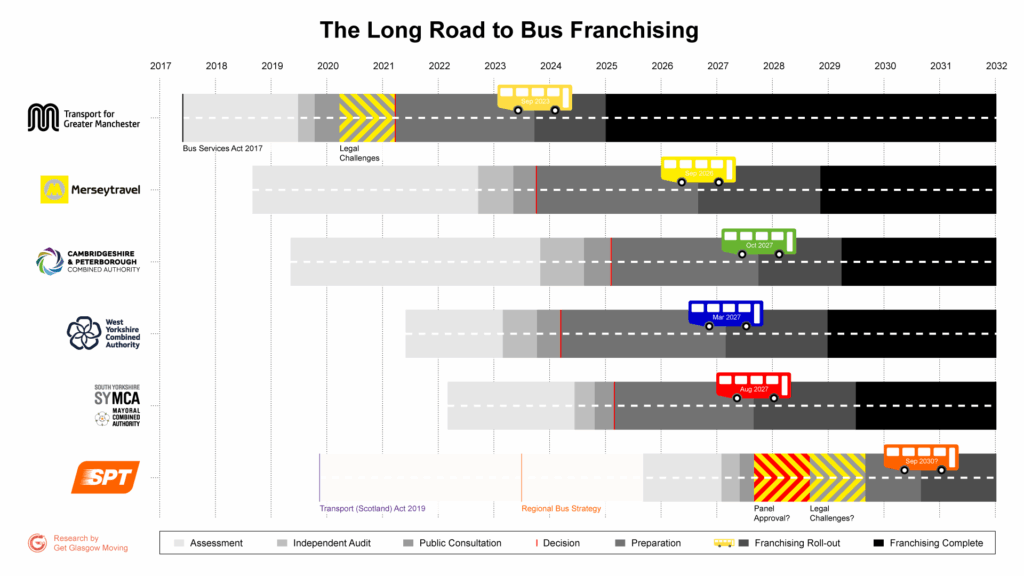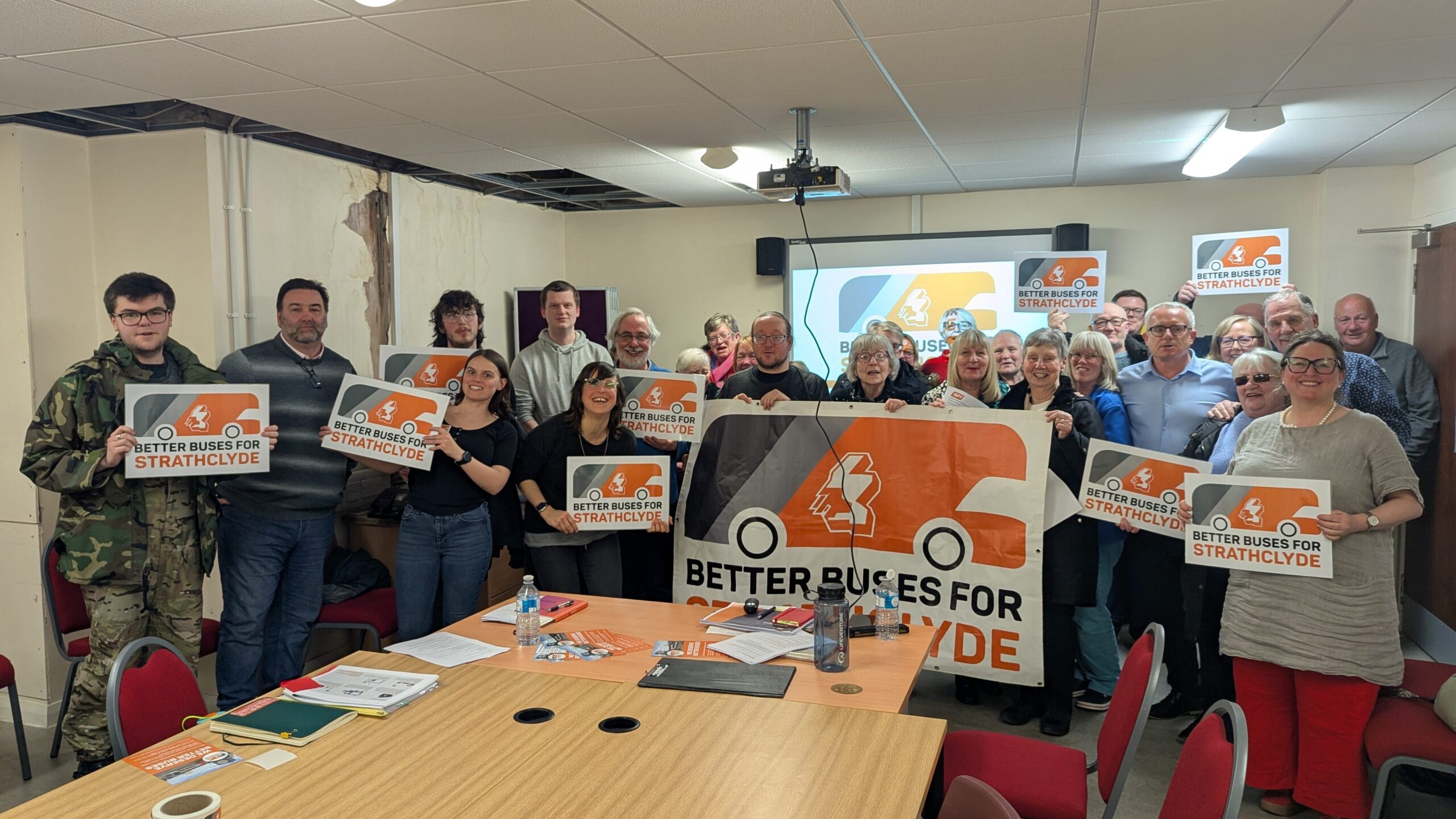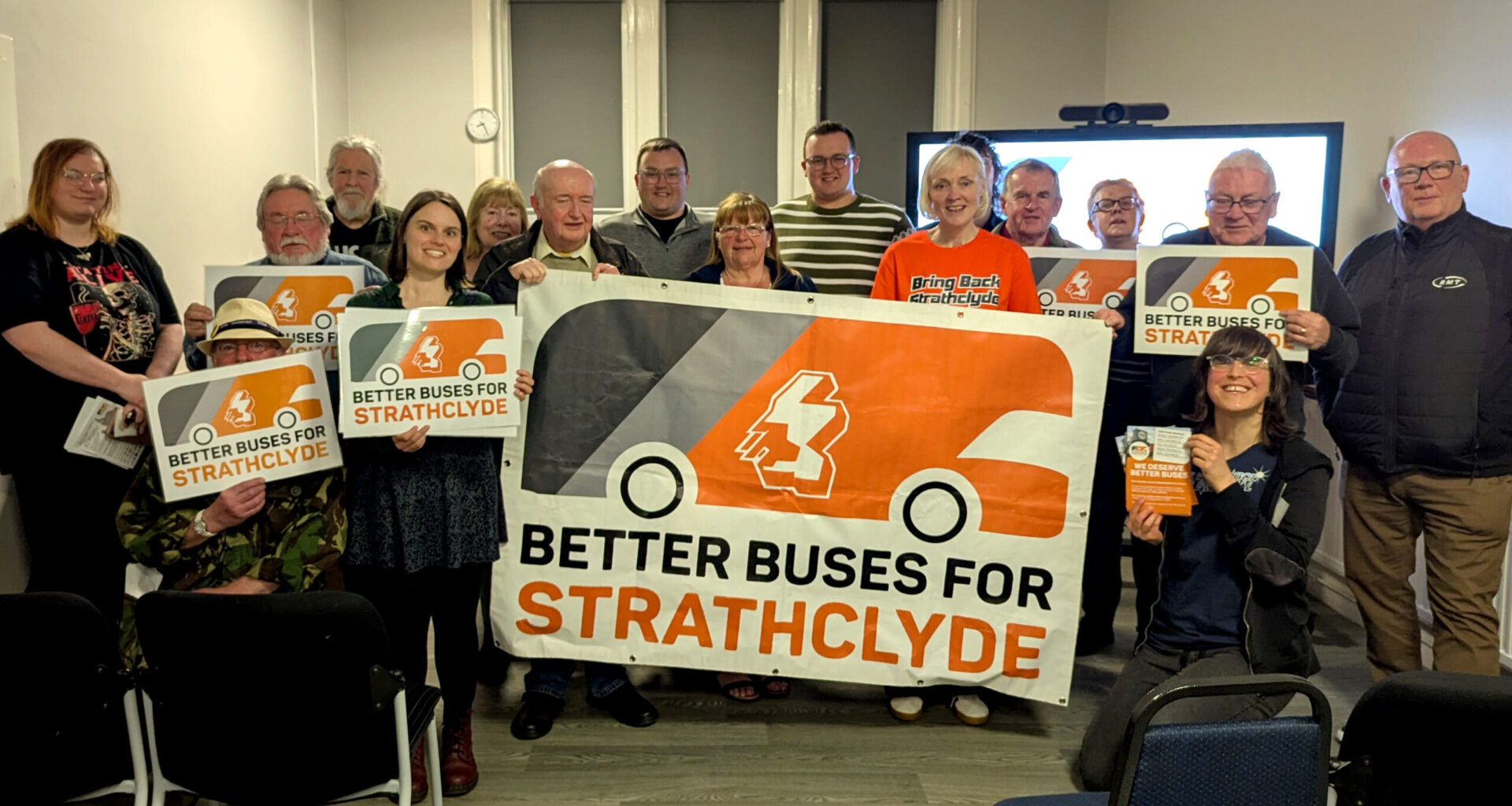9th September 2025 By Admin
In this article, Paul Shaw, Campaign Manager at Better Buses for Strathclyde, discusses the campaign to bring back buses into public ownership.
Buses in the Strathclyde region, as in most of Scotland, are being run for profit not for the needs of the people. They are expensive, poorly connected and routes are routinely cut if they’re not making enough money, no matter if they are a lifeline for the people who use them.
Better Buses for Strathclyde launched in September 2023 with a clear aim of pushing Strathclyde Partnership for Transport (SPT), the transport authority for the Strathclyde region, to use the powers available to them to take our bus network back under public control. Since then, we have garnered over 12,000 signatures on our petition and gained the support of over 50 organisations.
In early 2024, SPT ran a consultation on the options available to them to improve the bus network in the region. Thanks to tireless campaigning by everyone involved in Better Buses for Strathclyde, there were over 3,000 responses to the consultation and we pressed SPT to pin their colours to the mast and support bus franchising. Bus franchising means SPT would set the routes and fares. This was a huge win for the campaign.

It’s already been a very busy year in 2025 for us. SPT launched their draft Strathclyde Regional Bus Strategy in March followed by a 12-week consultation.
The strategy acknowledges the need for more high frequency “turn-up-and-go” services—meaning a service every 10 minutes—supported by less frequent feeder services. They highlight the requirement for simple fare structures and price-capping, aiming for tap-on, tap-off to be available across the whole network.
Transitioning the bus fleet to zero emission vehicles is also a key theme of the strategy and they identify that increasing the frequency of the services will require even more zero-emissions buses than we currently have. It will require well-equipped depots and a skilled workforce to maintain these buses and depots.
Importantly, they identify that all of these things can be done under a franchising model.
All in all, this is a great strategy. It shows SPT have clearly listened and know the challenges that are faced by passengers in Strathclyde when trying to get the bus and the way to address them.
In addition to franchising, SPT should be bold in its plans for a public ownership. Edinburgh has a municipal operator, Lothian Buses, and reaps the benefits of flat fares, integrated ticketing, a strong net zero plan and better staff relations than private operators.

During the consultation phase we had eight public meetings across the region in Motherwell, Erskine, Irvine, Clydebank, Whiteinch, Scotstoun, Kirkwood and Bridgeton. This was our last chance to influence the content of the final strategy so we made sure to spread the message far and wide that we want SPT to be as ambitious as possible when designing our future bus network.
We urged everyone to back SPT’s franchising plans and stressed the importance of bringing fleets and depots back into public ownership. These can then be leased to the operators running the franchises, this helps to seamlessly transfer franchises when the contract ends. Centrally-owned fleets and depots will also create fairer opportunities for smaller operators.
The full report of the consultation feedback will be delivered in September, but we already know there were 4,012 responses. People feel strongly about the bus network here, and it’s great that so many people are getting involved in the process.
Now our focus turns to the Scottish Parliament. Currently, we have the most complex franchising legislation in the UK and after the success of franchising in Greater Manchester, many other English regions are following suit. They are able to do this at a much quicker pace than we are in Scotland and we are at risk of being left behind.

How far we are behind can be seen clearly in research published by Get Glasgow Moving which highlights that English city regions which wish to pursue franchising have less roadblocks than we do in Scotland. At this rate, we are unlikely to see franchised buses on the streets of Strathclyde before 2030.
In June, the chancellor Rachel Reeves announced a package of funding, worth £15bn, for public transport infrastructure in England’s big city regions, outside London. £15bn spent on transport in England should result in around £1.3bn in Barnett consequentials to the Scottish government. This funding must be ring-fenced in Scotland for delivering better bus networks through franchising.
Better Buses for Strathclyde launched a petition last August asking the Scottish Government to publish the final pieces of legislation and guidance, now six years delayed; to amend the 2019 Transport (Scotland) Act to make the franchising process simpler; and to commit to providing funding to support the local authorities to prepare franchising frameworks.
It is imperative that these points are addressed in the first 100 days of the next Scottish Parliament.
We cannot wait any longer for better buses.
Sign the Better Buses for Strathclyde petitions and sign up to the mailing list.
